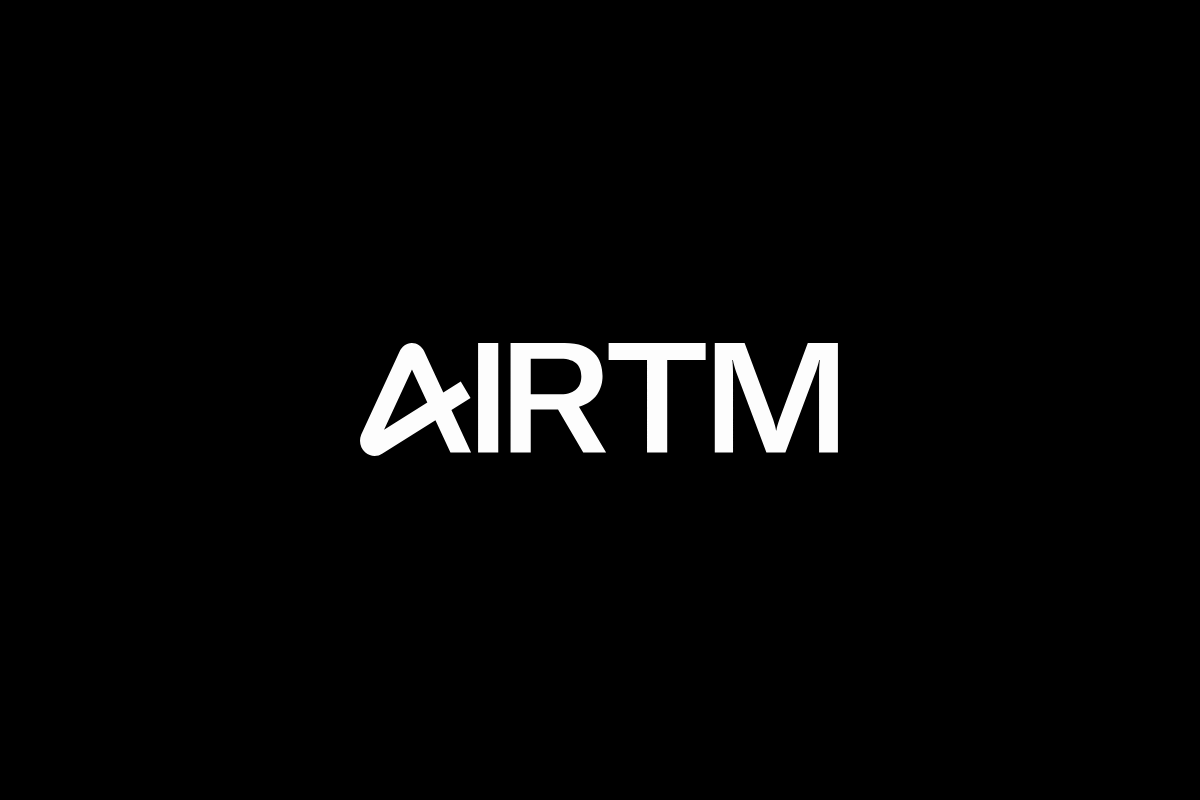Fintech
US Banking Agencies Ramp Up Regulatory Scrutiny: What Financial Institutions Need to Know

In a significant development for the financial sector, US banking agencies have announced increased regulatory scrutiny aimed at enhancing the stability and security of the financial system. The move comes in response to evolving risks and challenges, particularly in areas such as cybersecurity, risk management, and consumer protection. Financial institutions across the country are now preparing to navigate this heightened regulatory environment.
The Push for Stronger Oversight
The recent announcement by US banking agencies reflects a broader push for stronger oversight in the financial sector. Regulatory bodies, including the Federal Reserve, the Office of the Comptroller of the Currency (OCC), and the Federal Deposit Insurance Corporation (FDIC), are stepping up their efforts to ensure that financial institutions are adequately managing risks and complying with regulations.
The focus areas for increased scrutiny include:
- Cybersecurity and Data Protection: With the growing threat of cyberattacks, regulators are placing greater emphasis on the need for robust cybersecurity measures. Financial institutions are expected to implement comprehensive data protection protocols and demonstrate their ability to detect, prevent, and respond to cyber threats.
- Risk Management: Effective risk management has always been a cornerstone of financial regulation, but the recent surge in economic uncertainty has prompted regulators to intensify their oversight. Financial institutions must ensure that they have well-defined risk management frameworks that cover credit risk, market risk, and operational risk.
- Consumer Protection: Protecting consumers from unfair practices is another priority for regulators. Banking agencies are focusing on issues such as fair lending, transparency, and the prevention of discriminatory practices. Institutions are required to review their consumer protection policies and ensure that they comply with all applicable laws.
The Impact on Financial Institutions
The increased regulatory scrutiny is expected to have a significant impact on financial institutions, particularly in terms of compliance costs and operational practices. For smaller banks and credit unions, the burden of meeting these enhanced requirements may be particularly challenging. These institutions may need to invest in new technologies, hire additional compliance staff, and enhance their internal controls to meet the heightened standards.
Larger institutions, while better equipped to handle regulatory demands, will also need to adjust their strategies. This could involve revisiting their risk management practices, strengthening their cybersecurity frameworks, and conducting regular audits to ensure compliance.
Preparing for Regulatory Examinations
As regulatory agencies ramp up their oversight, financial institutions need to be prepared for more frequent and thorough examinations. This includes being proactive in identifying and addressing potential compliance gaps before they become issues. Key steps that institutions can take include:
- Conducting Internal Audits: Regular internal audits are essential for identifying compliance gaps and assessing the effectiveness of existing controls. Institutions should prioritize areas that are likely to receive the most scrutiny, such as cybersecurity and risk management.
- Strengthening Governance and Reporting: Effective governance is critical for regulatory compliance. Financial institutions should review their governance structures and ensure that they have clear reporting lines, transparent decision-making processes, and well-defined accountability mechanisms.
- Enhancing Employee Training: Employee training is a key component of compliance. Institutions should provide regular training on regulatory requirements, focusing on areas such as anti-money laundering (AML), fair lending, and data protection.
The Role of Technology in Compliance
Technology is playing an increasingly important role in helping financial institutions meet regulatory requirements. Regtech solutions, which use technology to automate and streamline compliance processes, are becoming more prevalent. These solutions can assist with tasks such as real-time transaction monitoring, automated reporting, and risk assessment.
Additionally, advancements in AI and machine learning are enabling institutions to identify patterns and anomalies that may indicate potential risks or compliance breaches. By leveraging these technologies, financial institutions can enhance their ability to stay compliant while reducing the administrative burden of manual processes.
The Path Forward
The increased regulatory scrutiny from US banking agencies is a clear signal that the financial sector must prioritize compliance and risk management. As the regulatory landscape continues to evolve, institutions that proactively adapt to these changes will be better positioned to thrive in a competitive and highly regulated environment.
Financial institutions should view this heightened scrutiny not just as a compliance requirement but as an opportunity to strengthen their operations, improve customer trust, and enhance their overall resilience. By embracing best practices, investing in technology, and fostering a culture of compliance, institutions can navigate the challenges ahead while positioning themselves for long-term success.
Conclusion
The ramped-up regulatory scrutiny by US banking agencies is set to reshape the financial sector’s approach to risk management, cybersecurity, and consumer protection. While the increased oversight presents challenges, it also offers opportunities for institutions to build stronger, more resilient businesses. As the industry adjusts to this new environment, those that prioritize compliance and proactive risk management will be best equipped to succeed.
Source: JD Supra
The post US Banking Agencies Ramp Up Regulatory Scrutiny: What Financial Institutions Need to Know appeared first on HIPTHER Alerts.
Fintech
Fintech Pulse: Your Daily Industry Brief (Chime, ZBD, MiCA)

As we close out 2024, the fintech industry continues to deliver headlines that underscore its dynamism and innovation. From IPO aspirations to groundbreaking regulatory milestones, today’s updates highlight the transformative power of fintech partnerships, regulatory evolution, and disruptive technologies. Here’s what you need to know.
Chime’s Quiet Step Toward Public Markets
Chime, the U.S.-based financial technology startup best known for its digital banking services, has taken a significant step by filing confidential paperwork for an initial public offering (IPO). As one of the most valuable private fintechs in the U.S., Chime’s move could potentially signal a renewed appetite for fintech IPOs in a market that has been cautious following fluctuating valuations across the tech sector.
With a valuation that reportedly exceeded $25 billion in its last funding round, Chime’s IPO could set a new benchmark for the industry. Observers note that its strong customer base and revenue growth may make it an appealing choice for investors seeking to capitalize on the digital banking boom. However, the timing and success of the IPO will depend on broader market conditions and the regulatory landscape.
Source: Bloomberg
ZBD’s Pioneering Achievement: EU MiCA License Approval
ZBD, a fintech company specializing in Bitcoin Lightning network solutions, has made history by becoming the first to secure an EU MiCA (Markets in Crypto-Assets Regulation) license. This landmark approval by the Dutch regulator positions ZBD at the forefront of compliant crypto-fintech operations in Europe.
MiCA, which aims to harmonize the regulatory framework for crypto-assets across the EU, has been a focal point for industry players aiming to establish legitimacy and expand their offerings. ZBD’s achievement not only validates its operational rigor but also sets a precedent for other fintech firms navigating the evolving regulatory landscape.
Industry insiders view this as a strategic advantage for ZBD as it broadens its footprint in Europe. By leveraging its regulatory approval, the company can accelerate its product deployment and establish trust with institutional and retail users alike.
Source: Coindesk, PR Newswire
The Fintech-Credit Union Synergy: A Blueprint for Innovation
The convergence of fintechs and credit unions continues to reshape the financial services ecosystem. Collaborative initiatives, such as the one highlighted in the recent partnership between fintech innovators and credit unions, are proving to be a potent force in delivering tailored financial solutions.
This “dream team” approach allows credit unions to leverage fintech’s technological expertise while maintaining their community-focused ethos. Key areas of collaboration include digital payments, personalized financial management tools, and enhanced loan processing capabilities. These partnerships not only enhance member engagement but also enable credit unions to remain competitive in an increasingly digital-first financial environment.
Industry analysts emphasize that such collaborations underscore a broader trend of traditional financial institutions embracing fintech-driven solutions to bridge service gaps and foster innovation.
Source: PYMNTS
Tackling Student Loan Debt: A Fintech’s Mission
Student loan debt remains a pressing issue for millions of Americans, and a Rochester-based fintech aims to offer relief through its cloud-based platform. This innovative solution is designed to simplify loan management and provide borrowers with actionable insights to reduce their debt burden.
The platform’s features include repayment optimization tools, personalized financial education, and seamless integration with loan servicers. By addressing the complexities of student loan management, this fintech is empowering borrowers to make informed decisions and achieve financial stability.
As the student loan crisis continues to evolve, solutions like this highlight the critical role fintech can play in addressing systemic financial challenges while fostering financial literacy and inclusion.
Source: RBJ
Industry Implications and Takeaways
Today’s updates underscore several key themes shaping the fintech landscape:
- Regulatory Milestones: ZBD’s MiCA license approval exemplifies the importance of regulatory compliance in unlocking growth opportunities.
- Strategic Partnerships: The collaboration between fintechs and credit unions demonstrates the value of combining technological innovation with traditional financial models to drive customer-centric solutions.
- Market Opportunities: Chime’s IPO move reflects a potential revival in fintech public offerings, signaling confidence in the sector’s long-term prospects.
- Social Impact: Fintech’s ability to tackle systemic issues, such as student loan debt, showcases its role as a force for positive change.
The post Fintech Pulse: Your Daily Industry Brief (Chime, ZBD, MiCA) appeared first on News, Events, Advertising Options.
Fintech
SPAYZ.io prepares for iFX EXPO Dubai 2025

Leading global payments platform SPAYZ.io has confirmed it will be attending iFX EXPO Dubai 2025 on 14 to 16 January. Exhibiting at Stand 64 at Trade Centre Dubai, SPAYZ.io’s team of professionals will be on hand providing live demonstrations of its renowned payment services for payment providers. Attendees will also receive exclusive insight into SPAYZ.io’s plans for 2025 alongside early early access to its upcoming plans for the new year.
SPAYZ.io delivers a host of payment solutions that leverage the latest technological innovations and open access to the fastest growing emerging markets across Africa, Europe and Asia. Over the past year, there has been huge demand for its Open Banking and local payment method services, alongside bank transfers, mass payouts, online banking and e-wallets.
Yana Thakurta, Head of Business Development at SPAYZ.io commented: “We look forward to once again participating at iFX Dubai to expand our network of partners and clients. It’s a fantastic way to kick off the year, connecting with thousands of industry leaders from FOREX platforms to trading companies, and everything in between.
“Our key goal for iFX Dubai EXPO 2025 is to expand our portfolio of solutions and geographies. We’re using this as an opportunity to partner with like-minded entities who share our ambition to provide payment solutions that are truly global.”
Come meet SPAYZ.io’s team at the Trade Centre Dubai at Stand 64. You can also book a meeting slot with a member of a team.
The post SPAYZ.io prepares for iFX EXPO Dubai 2025 appeared first on News, Events, Advertising Options.
Fintech
Airtm Enhances Its Board of Directors with Two Strategic Appointments

Airtm, the most connected digital dollar account in the world, is proud to announce the addition of two distinguished industry leaders to its Board of Directors: Rafael de la Vega, Global SVP of Partnerships at Auctane, and Shivani Siroya, CEO & Founder of Tala. These appointments reflect Airtm’s commitment to innovation and financial inclusion as the company enters its next phase of growth.
“We are thrilled to welcome Rafael and Shivani to Airtm’s Board of Directors,” said Ruben Galindo Steckel, Co-founder and CEO of Airtm. “Their unique perspectives and proven track records will be invaluable as we continue scaling our platform to empower individuals and businesses in emerging markets. Together, we’ll push the boundaries of financial inclusion and innovation to create a more connected and equitable global economy. Rafael and Shivani bring a wealth of experience and strategic insight that will strengthen Airtm’s mission to connect emerging economies with the global market.”
Rafael de la Vega, a seasoned leader in fintech global partnerships and technology innovation, is currently the Global SVP of Partnerships at Auctane. With a proven track record of delivering scalable, impactful solutions at the intersection of fintech, innovation, and commerce, Rafael’s expertise will be pivotal as Airtm continues to grow. “Airtm has built a platform that breaks down barriers and opens up opportunities for people in emerging economies to connect to global markets. I am excited to contribute to its growth and help further its mission of fostering financial inclusion on a global scale,” said Rafael.
Shivani Siroya, CEO and Founder of Tala, is a pioneer in financial technology, renowned for empowering underserved communities through access to credit and essential financial tools. Her leadership in leveraging data-driven innovation aligns seamlessly with Airtm’s vision of creating more equitable financial opportunities. “Empowering underserved communities has always been at the core of my work, and Airtm’s mission resonates deeply with me. I’m thrilled to join the Board and work alongside such a dynamic team to expand access to financial tools that truly make a difference in people’s lives,” said Shivani.
The post Airtm Enhances Its Board of Directors with Two Strategic Appointments appeared first on News, Events, Advertising Options.
-

 Fintech5 days ago
Fintech5 days agoFintech Pulse: Your Daily Industry Brief (Synapse, Shenzhen Institute, Visa, AutomatIQ, MeridianLink)
-

 Fintech4 days ago
Fintech4 days agoFintech Pulse: Your Daily Industry Brief (Revolut, Bestow, Advyzon, Tyme Group, Nubank)
-

 Fintech2 days ago
Fintech2 days agoFintech Pulse: Your Daily Industry Brief (Chime, ZBD, MiCA)
-

 Fintech4 days ago
Fintech4 days agoAsian Financial Forum returns as region’s first major international financial assembly in 2025
-

 Fintech5 days ago
Fintech5 days agoNASDAQ-Listed LYTUS Appoints Visionary Leader Sai Guna Ranjan Puranam as COO (Lytus Healthcare) and Group CTO (Lytus Technologies) to Revolutionize Healthcare and Technology
-

 Fintech5 days ago
Fintech5 days agoDhaka Court Dismisses Allegations Against Nagad Founder Tanvir A Mishuk
-

 Fintech PR3 days ago
Fintech PR3 days agoGan & Lee Pharmaceuticals Announces U.S. FDA Clearance of the IND application for the innovative Bi-weekly GLP-1RA GZR18 Injection, Bofanglutide, with chronic weight management Indication (A Phase 2 head-to-head with Tirzepatide clinical trial)
-

 Fintech PR5 days ago
Fintech PR5 days agoFrost & Sullivan Recognizes AllianceOne and Central Florida Expressway Authority with 2024 Customer Value Leadership Award




